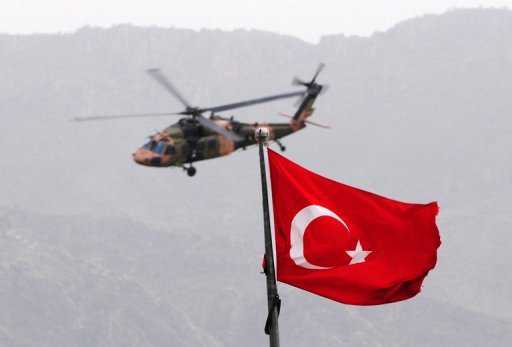|
Soner Cagaptay
Hurriyet Daily News September 15, 2009 |
Two recent cases in Turkey involving American think tanks serve as evidence that anti-Americanism often spreads because of what people hear from their governments, and that such rhetoric, if not countered immediately, can have a debilitating effect on America’s standing overseas.
The most recent Turkish case concerns a June 2009 Atlantic Council report, which outlines steps toward confidence building between Turkey and the Iraqi Kurds. The report has been vilified in Turkey in vicious attacks and decried as an evil American plan that inspired the Justice and Development Party, or AKP, government’s summer 2009 Kurdish opening, an initiative that promises steps to alleviate Turkey’s Kurdish problem. A think-tank in Washington driving the AKP’s politics?! Yet, as unbelievable as it might sound, the current consensus in Turkey is that the Atlantic Council report and the United States government are pushing the AKP’s summer initiative, and that because America and an American think tank are behind it, this initiative is against Turkey’s interests.
The United States and American think tanks have lately taken on a poisonous reputation in Turkey. Outside observers may find this shocking, but the roots of this recent negative perception go back to the June 2007 “Hudson Institute Incident.” At that time, the AKP used a roundtable discussion held at Hudson on the Kurdish issue, attended by the Turkish military, to suggest that the military was plotting in Washington against the AKP, and that it was using the Kurdistan Workers’ Party, or PKK, to this end. The party leadership lambasted the Washington think tank, suggesting that “in dark rooms” and “behind closed doors,” “plans are made in Washington against Turkey’s interests” and that the roundtable conversations constituted a crime “beyond treason” for the Turks in attendance.
Such rhetoric vilified U.S. think tanks and Washington. Embodying U.S. foreign policy toward Turkey, U.S. think tanks and Washington became synonymous with a conspiratorial view of sinister plotting against Turkey. This spin engulfed Turkey in a nationalist and anti-American frenzy during the early summer of 2007, becoming the only issue the Turks debated in that period. Supported by the government, and promoted by pro-government media, this hard to believe perception that a Washington think-tank and America were conspiring against Turkey became common currency, while allowing the AKP to tarnish the military’s image and surf to a wave of popularity in the July 2007 elections.
Sad as it is, the AKP’s instrumentalization of the Hudson incident ended up maligning the intellectual exercise about Turkey. Writing about and discussing Turkey in Washington became a risky exercise attracting vitriolic attacks. Now, however, the tables have turned: the AKP is reaping what it sowed in 2007 and is at the receiving end of the poisoned anti-American and “Washington and its think tanks are evil” environment it helped create. The “Atlantic Council” incident is hurting the AKP’s image and the party is hard pressed to prove that “behind closed doors and in dark rooms in Washington, evil plans are not made against Turkey’s interests.”
All this has a cost to Turkey and the United States. The incidents involving the Hudson Institute and the Atlantic Council show that once the seeds of anti-Americanism are sown, it is almost impossible to uproot them from the political landscape of a country. The AKP has now learned that this phenomenon can even turn on the hand that once birthed it. So, foreign governments — stand warned.
More importantly, the two incidents also demonstrate that anti-American rhetoric spread by foreign governments should not be dismissed as simple domestic politicking, for more than what America does or say, such rhetoric defines what people overseas think of the United States. The international public opinion of the United States is in many countries like a tank of water; even one drop of political arsenic is enough to poison the whole tank, and such poison is not made in America.
Soner Cagaptay is a senior fellow and director of the Turkish Research Program at The Washington Institute.


Leave a Reply